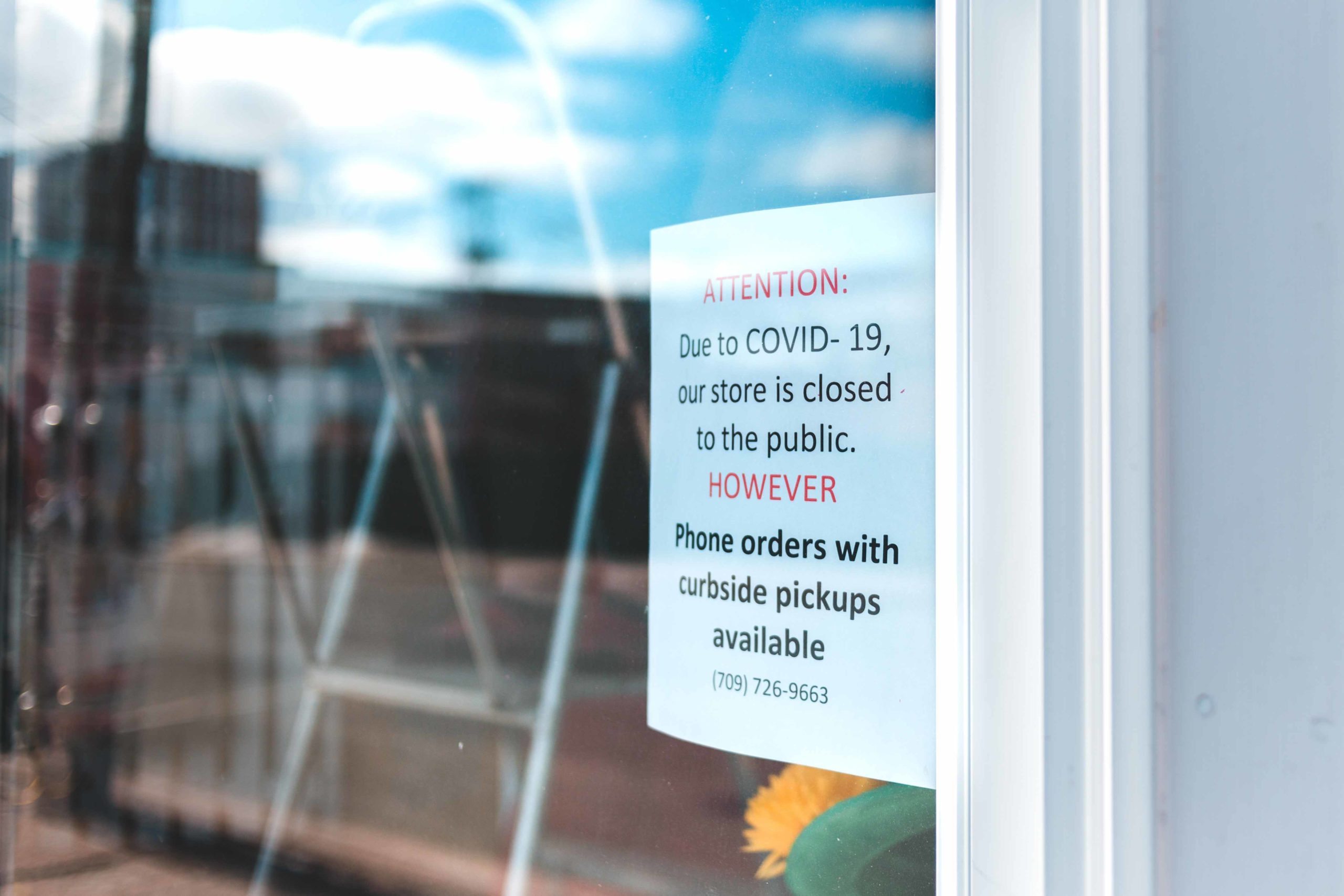
Learn About the Board-Certified Broker Program: Aug. 4
Clients who want to buy or sell a business want to know they are working with a business broker who knows what they’re doing. That’s why the Georgia Association of Business Brokers is preparing a certification program to help train business brokers to better represent their clients.
Business brokers and those who aspire to become brokers are invited to the GABBs’ virtual meeting on Aug. 4, 2020, at 10 a.m. to hear about the Board-Certified Broker or BCB proposal.
The GABB believes that to be a successful business broker, a person must understand issues beyond those typically covered by real estate schools. That’s why the GABB has acquired a license from the Georgia Real Estate Commission (GREC) to operate a real estate school, the only such school in Georgia dedicated to business brokering. The proposed BCB program will teach business brokers what they need to know about accounting terms, federal tax returns, understanding financial statements, recasting financial statements, business and inventory valuation, financing a business sale, understanding legal issues, understanding business structures, confidentiality, marketing, ethics, due diligence, securing business-for-sale listings, and setting up a business broker practice.
The GABB has posted details about the curriculum online at the GABB blog.
At the Aug. 4 meeting, members and others will be able to offer feedback on our proposal.
Under Georgia law, there is no specific licensing requirement to be a business broker. However, anyone selling or buying, offering to buy or sell, acquiring prospects to buy or sell or negotiating for the buying or selling of real estate for compensation must be licensed by the GREC. According to section 520.1-.19 of Georgia law, Business Brokers are covered by the same legal requirements as any Real Estate licensee if the sale includes the transfer of any interest in real estate, including leases.
For more information about GABB, please email diane.loupe@gabb.org or call or text 404-374-3990, or contact GABB president Dean Burnette at dean@b3brokers.com or (912) 247-3209.
Read More
Buying A Small Business: Earnest Money Deposits Should Be Reasonable
By Peter Siegel MBA, BizBen Founder, ProBuy, ProSell, ProIntermediary Programs
I was speaking with a prospective business buyer the other day – he had just signed up to get business purchase financing. He said he wanted the business; however, he was uncomfortable putting down a 10% deposit for a $350,000 business. He asked if he could lower the deposit requirement to $5,000.
I asked a business broker that day on the phone what his opinion was on earnest money deposits for escrow/bulk sale accounts when selling a small business, here is what he told me via email:
Earnest money deposits serve two purposes.
First, they show the seller that you are serious about buying the business. Secondly, in the event that you as the buyer default on the purchase agreement after due diligence and other contingencies have been removed, the earnest money deposit typically serves as liquidated damages to the seller. Would you as a business owner take an offer for your $350,000 business seriously when it was accompanied by a good faith deposit of only $5,000? Would you allow someone to tie up your business for 30, 45, 60 days or more with only $5,000 in escrow?
Occasionally a buyer will write an offer, provide a 10% deposit check and then ask that it be held for two to four weeks or more until all contingencies have been removed. A good faith deposit that can’t be deposited is no good faith at all. The contingencies in a purchase agreement protect you as the buyer, and if you walk away from the transaction before the contingencies have been released, your deposit will be returned to you less any escrow costs incurred. It is your good faith deposit that is supposed to help protect the seller in the transaction. If the check can’t be deposited then what good is it? The buyer is literally asking to tie up the seller’s business for two to four weeks or more with nothing.
The basic rule is this – When there is no money, there is no Buyer.
A 10% deposit shows good faith, shows your intent to purchase the business, and separates the buyers from the shoppers.
Buying a business is a serious process, and offers should not be made lightly. If you don’t know enough about the business to be confident enough to put down a 10% deposit, continue your research until you are more confident. When you are ready to make an offer, show the seller you are serious about buying his/her business. You will find that your offer will be more readily accepted when it is accompanied by a standard 10% deposit.
If you really want to stand out above the rest, provide a cashiers check for the deposit. Then you truly have shown the Owner/Seller your intention to buy their small business is serious.
Orange County, Calif., business broker Joe Ranieri, said “the minimum I want to see when opening escrow is $10,000. Anything less and I feel the buyer is not showing enough commitment. Granted, we all know that a buyer can invent any reason for canceling an escrow, and possibly get a percentage of the deposit back, but $10,000 shows good faith.”
If the purchase price is north of $200,000-$250,000, Ranieri said he would encourage the seller to ask for a greater amount for the security deposit. “I remind the buyer, that from the seller’s perspective, that once we open escrow, the business is basically off the market, unlike selling a house which can accumulate many back up offers, but with a business, many buyers will simply look somewhere else once it’s in escrow.”
San Francisco business broker Timothy Cunha said the “good faith refundable deposit” is often the major impediment to an offer being made and accepted. “And it should be – neither the buyer nor the seller is benefited by a half-hearted mediocre interest in the business,” he said.
A properly drafted contract will stipulate that the deposit go to an independent escrow agent and to be fully refundable if the purchaser terminates the contract prior to the end of due diligence “for any reason or for no reason.” Cunha says he “will only use an escrow agent who will charge no escrow fee until due diligence has expired and they actually begin their work.”
The deposit is important because “once the business goes into contract, the business is effectively off the market; it cannot be shown and no other offer can be accepted,” Cunha says. “The seller has to know the buyer is serious before shutting down the marketing “funnel.” ”
“If the buyer can’t raise 10% of the purchase price for a deposit, it is highly unlikely that he or she has the requisite cash to be a serious prospective purchaser of the business,” he said. “And, the deposit should be substantial enough to signify the commitment of the buyer – 10% is a good number that seems to work for most deals under a half million dollars; for higher purchase prices, sometimes a deposit between 5% and 10% can be negotiated.”
This article originally appeared on the BizBen blog.
Read More
Getting the Most Value from a GABB membership
Belonging to the GABB can be worth thousands of dollars if a member takes advantage of all the group’s benefits.
Among the benefits of belonging to GABB:
- A Georgia-based listing service, with hundreds of businesses and franchises for sale in Georgia and the Southeast.
- A portfolio of 30 legal forms drafted by GABB member attorneys that are specifically designed for business brokers, including listing support forms, business buyer forms, deal forms, letters of intent, due diligence checklists, and purchase and sale agreements. Hiring an attorney separately to draft all of these would cost thousands of dollars.
- Access to the online Atlanta Business Chronicle, Atlanta’s award-winning source of business news. The subscription link includes unlimited access to news that grows business, advances careers and simplifies professional lives. Read local market intelligence, stay on-top of emerging business opportunities and connect to a powerful community of local executives.
- GABB forum: Communicate with all GABB business broker and professional affiliate members. Respond to queries from people seeking to hire a business broker, or find out about professional education. Learn how to subscribe to new forum posts.
- Professional Resources: GABB affiliate members include Georgia’s most experienced SBA lenders, business attorneys and financial resources.
To hear a presentation of how GABB members can access these features, please view a recording of our July 7 Zoom meeting.
Or review this PPT presentation.
Getting the Most out of a GABB membership Presentation
For more information about GABB, please email diane.loupe@gabb.org or call or text 404-374-3990, or contact GABB president Dean Burnette at dean@b3brokers.com or (912) 247-3209.
Read More
Building a Strong Brand: What Do Your Customers Say About YOU?
What do your customers/clients say about your or your company when you’re not around?
What do the employees say about you or your company when you’re not around?
Those things represent your external and internal brands, says brand guru Skot Waldron, and they can help or hurt you. Waldron spoke on June 30 to the Georgia Association of Business Brokers about building brand loyalty.
At the end of the day, we all crave loyalty, Waldron says. We want loyalty from our family members, loyalty from our customers, loyalty from employees, and loyalty from the companies we dedicate ourselves to. Your brand is typically associated with how you appear on the outside and how you communicate your value to the world. Skot pushes this idea by saying your brand starts on the inside and drives what’s on the outside.
Things that hurt your internal brand:
- Generic vision/mission/values that inspires no one.
- No self-awareness.
- Fear/manipulation
- Passive aggressiveness
- Misalignment
- You aren’t consistent in your communication.
You damage your external brand by:
- Treating marketing as an expense vs. an investment.
- Staying busy with day-to-day tactics instead of focusing on a strategy.
- Not differentiating your product or service.
- Not knowing how to clearly and confidently talk about your product or service.
- Being inconsistent and lacking a cohesive message
that resonates with people.
Skot recommends that entrepreneurs and small business people should ask trusted colleagues these questions: What five words would you use to
describe me/my business? What are my/our top 3 strengths? What are my/our top 3 weaknesses?
Listen to Skot’s presentation here.
Skot’s PPT Presentation “Why People Aren’t Loyal to Your Brand & What to Do About It,” is linked here:Why People Aren’t Loyal to Your Brand
For the past 18 years, Skot Waldron’s brand work for clients such as J.P. Morgan Chase, CDC, Georgia Tech, Royal Caribbean, Sesame Workshop, Chiquita, and The Coca-Cola Company has included both employee-centric and customer-centric projects.
He helps organizations communicate more effectively with their employees and customers with the goal of creating more alignment, consistency, and loyalty. Skot believes you have to be healthy on the inside (culture) in order to truly be healthy on the outside (brand and marketing). He helps with both.
In addition to running his own coaching and creative agency, Skot has been teaching brand development at the Miami Ad School in Atlanta. He has also traveled to different cities in the U.S. to conduct communication training and speaks about how the value of branding pertains to us as individuals, teams, families, and businesses.
The Georgia Association of Business Brokers, the state’s largest and most prominent association of professionals dedicated to the purchase and sale of businesses and franchises, is holding brief weekly meetings online during the pandemic. Business brokers, bankers, business attorneys and other professionals join the weekly calls to ask and answer questions about buying and selling a business during the pandemic. The GABB also maintains a listing service with hundreds of Georgia businesses for sale.
To join the GABB’s Tuesday meetings, please go to
https://us02web.zoom.us/j/95506520094?pwd=WXdtNjhQVmRSWWdDNk5nV2lHZnNKdz09
Meeting ID: 955 0652 0094
Password: 054703

Documenting Material Adverse Changes: Selling a Business in the Pandemic
The COVID-19 pandemic has had a significant effect on all U.S. businesses, but that doesn’t mean the owners won’t be able to sell.
Thomas Rockwood, Vice President of SBA Lending at Atlantic Capital Bank, outlined for the Georgia Association of Business Brokers what documents business sellers should prepare if they are anticipating selling their business in the near future. Rockwood spoke to a virtual GABB meeting on June 23, 2020.
 The pandemic could affect any pending contract because it constitutes a Material Adverse Change (abbreviated MAC), material adverse event (MAE), or material adverse effect (also MAE). In other words, changes triggered by COVID-19 COULD significantly reduce a company’s value because it could impact how the company operates in the future. Many contracts to acquire, invest in, or lend money to a company contain a term that allows the acquirer, investor, or lender to cancel the transaction if a material adverse change occurs and does directly affect SBA Eligibility for a loan.
The pandemic could affect any pending contract because it constitutes a Material Adverse Change (abbreviated MAC), material adverse event (MAE), or material adverse effect (also MAE). In other words, changes triggered by COVID-19 COULD significantly reduce a company’s value because it could impact how the company operates in the future. Many contracts to acquire, invest in, or lend money to a company contain a term that allows the acquirer, investor, or lender to cancel the transaction if a material adverse change occurs and does directly affect SBA Eligibility for a loan.
“A material adverse change can happen to anybody at any time,” Rockwood noted. It’s critical for business owners to document how the event affected their business in order to borrow SBA funds and obtain a favorable purchase price.
When collecting sellers’ financials, SBA lenders will want to see:
- Last 3 years Filed Business Tax Returns
- 2019 FYE Financials to include
- P&L, Balance Sheet, AR & AP Aging Report & Debt Schedule
- 2020 YTD Financials to include
- P&L, Balance Sheet, AR & AP Aging Report & Debt Schedule
“We’re in this place where we have no idea what tomorrow looks like,” Rockwood said. “What are the things we can control?”
A seller can document the impact of the pandemic or other MAE on their business by showing month-by-month P&L comparisons. Did the seller’s business bounce back in June? Another helpful strategy would be identifying sales by customer, showing key customers and how they were affected by the MAE. Sales by product could also be beneficial, Rockwood said.
Preparing a memo of understanding could help a buyer, Rockwood said, because it describes in detail what is going on with a business. For example, if sales go up, but net profits go down, what happened? A memo could explain that labor costs rose and the business had to hire more people to move the product out the door.
If a seller can “bookend the start and end of MAC,” that’s going to help paint a strong picture for a business buyer on what happened to the business, Rockwood said.
Sellers ought to come up with a playbook of operations of how the business has or plans to keep employees safe, so that a potential buyer can walk in and continue running the business smoothly. Although some sellers stay on and advise buyers, sometimes they don’t. That playbook will help a new owner because it “outlines what the seller did, how they handled the situation, and gives some advice to the new buyer.”
“It’s the seller’s company, and they know it better than anybody else could,” Rockwood said. “That will be very beneficial to any buyers who want to buy a business.”
A video recording of the meeting is linked here.
Mr. Rockwood’s presentation is available here.
Preparing to Sell After the Pandemic
Mr. Rockwood has spent more than 16 years working with companies to provide government guaranteed lending solutions. He has a B.S. in Marketing & Business from Central Washington University; and an M.B.A. in Marketing Management, Regis University.In addition to being a GABB member, Mr. Rockwood is an executive board member of the Georgia Lenders Quality Circle (GLQC) and a member of the National Association of Government Guaranteed Lenders (NAGGL).
The Georgia Association of Business Brokers, the state’s largest and most prominent association of professionals dedicated to the purchase and sale of businesses and franchises, is holding brief weekly meetings online during the pandemic. Business brokers, bankers, business attorneys and other professionals join the weekly calls to ask and answer questions about buying and selling a business during the pandemic.
To join the GABB’s Tuesday meetings, please go to
https://us02web.zoom.us/j/95506520094?pwd=WXdtNjhQVmRSWWdDNk5nV2lHZnNKdz09
Meeting ID: 955 0652 0094
Password: 054703
Read More
